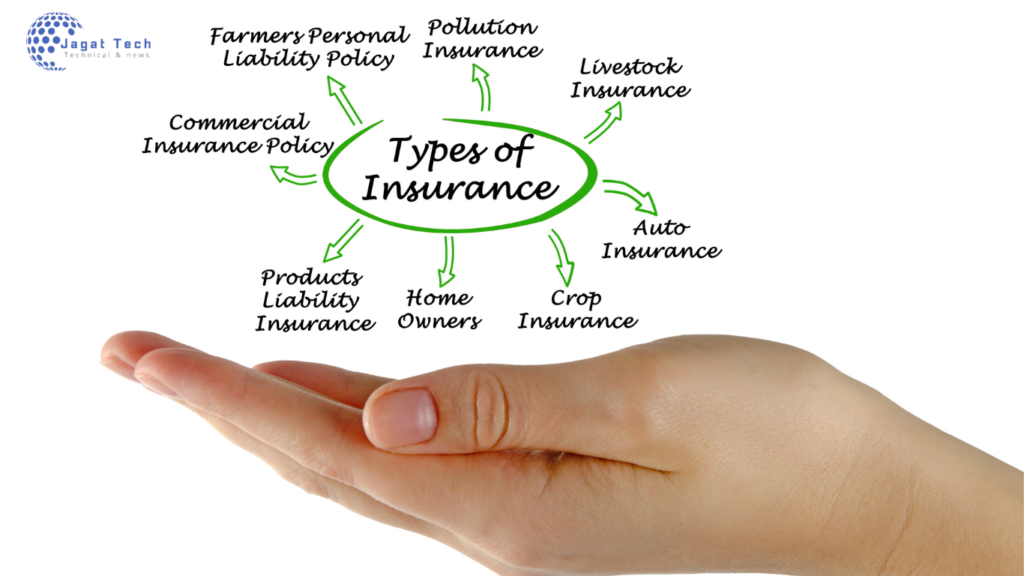What Is Insurance? – Definition And Types Of Policies

Welcome to our website! Today, we present essential information about insurance, a crucial aspect of life for everyone. Understanding the importance of insurance can significantly impact your financial security and peace of mind. Let’s explore why having insurance is vital.
What Is Insurance?
You’ve likely heard people mention life insurance, home insurance, or vehicle insurance. But have you ever wondered why so many individuals choose to insure their possessions? Let’s delve into the reasons behind this choice and clarify what insurance entails.
Insurance provides a safety net. For instance, when someone obtains life insurance, they ensure that, in the event of an accident or unexpected incident, their family receives financial support. This coverage helps families maintain their standard of living without facing severe financial strain.
Similarly, vehicle What Is Insurance protects against unforeseen circumstances. If you experience an accident and your vehicle sustains damage, your insurance company can compensate you for repairs. This protection prevents significant financial burdens and provides peace of mind while driving.
Why do insurance
From the information provided, you can see why individuals choose to obtain insurance. If you hold an insurance policy, you can benefit from cashless treatment, simplifying the payment process during medical emergencies. Additionally, many insurance plans cover pre- and post-hospitalization expenses for up to 60 days, depending on the specific policy. This coverage ensures that you are financially supported throughout your treatment journey.
Which is the best insurance?
When it comes to the best insurance options, the LIC Jeevan Umang policy stands out. Often referred to as a partnership plan, this policy provides significant benefits, including life insurance coverage. LIC is well-known for its reliability and comprehensive offerings. If you’re considering insurance, you can confidently choose LIC without exploring other options, as it is one of the safest policies available.
How is insurance?
Insurance is a contract between an individual and an insurance provider. Under this agreement, if the insured individual experiences an accident or death, the insurance company provides a predetermined amount of financial assistance to the designated nominee. This financial support helps ensure that the nominee is not burdened with unexpected expenses during a challenging time.
What is Insurance its types?
There are various types of insurance, including health, travel, motor, and fire insurance, all of which serve different purposes. Life insurance specifically addresses unforeseen events such as death or disability. For instance, travel insurance provides coverage if you experience an accident while abroad, ensuring that your family receives financial assistance.
Understanding What Is Insurance the importance of insurance is crucial. While all forms of insurance are essential, life insurance stands out as the most vital. It offers financial support for medical treatments in case of major illnesses, ensuring that you can focus on recovery without the stress of medical expenses.
Each type of insurance offers unique benefits. Vehicle insurance, for example, provides coverage in the event of an accident, ensuring you receive compensation for damages.
Now that you have a clearer understanding of what insurance is and which types are necessary, prioritize obtaining your life insurance first. If your budget allows, consider securing additional insurance policies to protect against potential risks in the future.
Types of Insurance Policies: A Detailed Overview

Insurance policies can be categorized into several types, each serving different needs and circumstances. Understanding these categories is crucial for making informed decisions about coverage.
See also How To Grow Youtube Channel >>>>>>
1. Life Insurance
Life insurance provides financial protection to the beneficiaries of the insured in the event of the insured’s death. It can be further classified into:
- Term Life Insurance: This policy covers the insured for a specified term, typically ranging from 10 to 30 years. It pays a death benefit only if the insured passes away within the term. Term life is often more affordable and is suitable for individuals who seek temporary coverage.
- Whole Life Insurance: This is a permanent insurance policy that covers the insured for their entire life. It accumulates cash value over time, which can be borrowed against or withdrawn. Whole life insurance is ideal for those looking for lifelong coverage and a savings component.
2. Health Insurance
Health insurance is designed to cover medical expenses incurred due to illnesses, injuries, or other health conditions. It can include:
- Individual Health Insurance: Policies that cover one person, providing financial assistance for hospital stays, surgeries, and preventive care.
- Group Health Insurance: Typically offered by employers, this policy covers a group of people, usually at lower premiums due to shared risk.
3. Auto Insurance
Auto insurance protects against financial losses resulting from vehicle-related incidents. Key components include:
- Liability Coverage: This is mandatory in most states and covers damages to other parties in an accident where the insured is at fault.
- Collision Coverage: This covers damages to the insured’s vehicle resulting from a collision with another vehicle or object.
- Comprehensive Coverage: This protects against non-collision-related incidents, such as theft, vandalism, or natural disasters.
4. Homeowners Insurance
Homeowners insurance safeguards against damages to an individual’s home and possessions. It typically includes:
- Dwelling Coverage: Protects the structure of the home itself.
- Personal Property Coverage: Covers personal belongings inside the home.
- Liability Protection: Protects against claims of negligence or injuries that occur on the property.
5. Disability Insurance
Disability insurance provides income replacement for individuals unable to work due to illness or injury. There are two main types:
- Short-term Disability Insurance: Covers a portion of the insured’s salary for a limited period, typically a few months.
- Long-term Disability Insurance: Provides coverage for extended periods, often until retirement age, depending on the policy terms.
6. Travel Insurance
Travel insurance offers protection against financial losses incurred while traveling. Coverage can include:
- Trip Cancellation Insurance: Reimburses non-refundable travel expenses if a trip is canceled for covered reasons.
- Medical Coverage: Covers medical expenses incurred while traveling, particularly important for international trips.
The Importance of Insurance in Modern Society
In today’s What Is Insurance uncertain world, having insurance is essential for protecting oneself and one’s assets. It offers peace of mind, allowing individuals and families to live their lives without the constant worry of unexpected financial burdens. Here are some key benefits:
- Financial Security: Insurance provides a safety net that ensures individuals are not left to bear the full brunt of financial loss in the event of unforeseen circumstances.
- Access to Quality Healthcare: Health insurance makes medical care more accessible, allowing individuals to seek necessary treatments without the fear of exorbitant costs.
- Stability for Businesses: For businesses, insurance is critical in managing risks associated with liability, property damage, and employee injuries, contributing to overall business continuity.
Choosing the Right Insurance Policy
Selecting the appropriate insurance policy can be daunting, given the multitude of options available. Here are some steps to consider:
- Assess Your Needs: Understand your individual or family needs, including health, financial situation, and specific risks.
- Research Options: Explore various insurance providers and policies. Compare premiums, coverage limits, and exclusions to find the best fit.
- Consult an Insurance Agent: Professional agents can provide valuable insights and help tailor coverage to meet your unique requirements.
- Read the Fine Print: Always review the terms and conditions of any policy to understand coverage details, exclusions, and claim procedures.
FAQs About What Is Insurance?
1. What is insurance?
Insurance is a contract between an individual (the insured) and an insurance company (the insurer) that provides financial protection against specified risks in exchange for regular premium payments.
2. Why do I need insurance?
Insurance helps mitigate financial risks associated with unforeseen events, such as accidents, illnesses, or property damage. It provides peace of mind and ensures that you are protected from significant financial losses.
3. What are the different types of insurance policies?
There are several types of insurance policies, including:
Life Insurance: Provides financial support to beneficiaries upon the insured’s death.
Health Insurance: Covers medical expenses for illnesses or injuries.
Auto Insurance: Protects against financial loss from vehicle-related incidents.
Homeowners Insurance: Covers damages to your home and personal property.
Disability Insurance: Offers income replacement if you become unable to work due to illness or injury.
Travel Insurance: Protects against financial losses incurred while traveling.
4. How do I choose the right insurance policy?
To choose the right insurance policy, assess your needs, research various options, compare premiums and coverage limits, consult with What Is Insurance an insurance agent, and carefully read the terms and conditions of each policy.
5. What is the difference between term life insurance and whole life insurance?
Term life insurance provides coverage for a specific period (e.g., 10 or 20 years) and pays a death benefit only if the insured dies during that term. Whole life insurance offers lifelong coverage, accumulates cash value over time, and can be borrowed against or withdrawn.
6. What is a deductible in an insurance policy?
A deductible is the amount you must pay out of pocket before your insurance coverage kicks in. For example, if your policy has a $500 deductible and you incur $2,000 in covered expenses, you will pay the first $500, and the insurer will cover the remaining $1,500.
7. How are insurance premiums calculated?
Insurance premiums are calculated based on various factors, including your age, health status, lifestyle, the type of coverage, and the level of risk associated with the insured item or person.
Conclusion
Insurance plays a vital role in protecting individuals and families from financial hardship. With various types of policies available, it is essential to choose the right coverage that aligns with your needs and circumstances. By understanding the different types of insurance and their benefits, we can make informed decisions that safeguard our futures.






